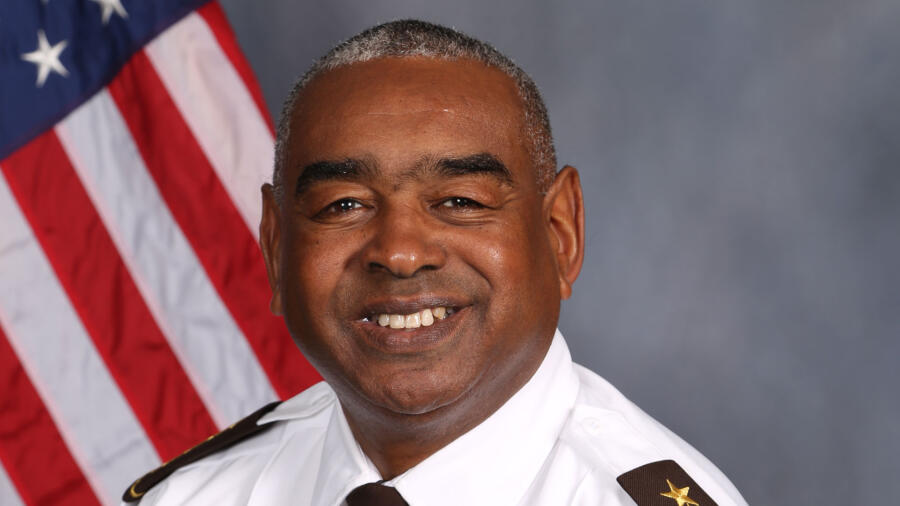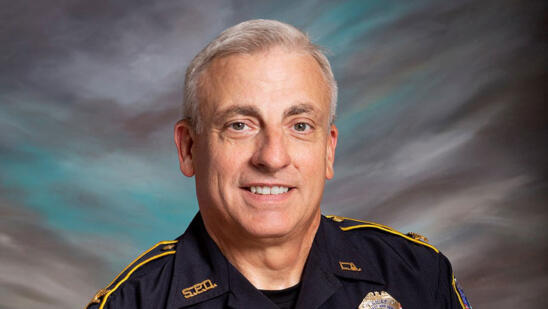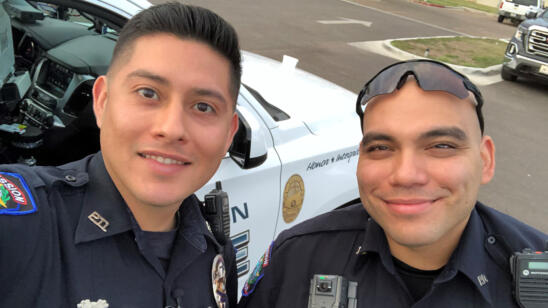For some, going into law enforcement is a lifelong dream that first reveals itself in grade school. For Sheriff Mark Pettway, however, the idea that he would have a career in law enforcement first came up when he was already well into his 20s. From the time he was a teenager, Pettway says, “I experienced law enforcement for minor things, and I felt like I was being harassed.” He wanted to change this—both for himself and for others. Pettway spoke with A&E True Crime about how he pursued this mission, what his childhood was like and what’s been happening with the Jefferson County (Alabama) Sheriff’s Office since he became sheriff in early 2019.
Where did you grow up?
I grew up in the Birmingham, Alabama, area—the largest city in the state. It’s a civil rights city! I was born in the 60s. I saw a lot of changes there. My mother was one of the first to integrate the teaching system for the county teachers. My father was the first Black foreman at what was Hayes International Corporation, at the time—[an aircraft manufacturing and maintenance company].
This was an area where the first Black man on the city council lived, and the first Black judge for the district court lived, so I saw a lot. I also grew up right around the corner from [activist] Angela Davis! She was three blocks away from me and her mother was a teacher at the school I started at.
What led you to what you’re doing now?
There were some things I experienced personally with law enforcement officers where I didn’t think they were treating me right. I wanted to change the system. Instead of becoming an activist, I became a law enforcement officer.
Since I’ve been in law enforcement, I have made some changes to make sure everybody is treated fairly. No one has their rights violated. I want to make sure that we are the professionals we’re called out to be. We need to show this next generation something better about law enforcement.
You have a new program, the Bridging the Gap Community Tour. What is it all about?
I’m the first African American to be elected sheriff in Jefferson County. There were some people who did not vote for me. I am going to their communities, offering out a hand and saying, ‘Hey, I am the sheriff—whether you voted for me or not. Let’s work together. Let’s get to know one another. Let’s see what we can do to make this area safer.’
We want the community to feel free to contact us. They can communicate with us through our app, or call us. We’re there for them and we want to make sure we have the opportunity to serve them at the highest level we can.
How has that been received?
It’s been great. We’re building a trust between one another. They’re offering suggestions. We’re coming together as a community, and [finding] ways to make citizens feel safer.
What is the Sheriff’s Neighborhood Enforcement Team (SNET)?
It was an idea brought to me by one of my chiefs, Chief Deputy [Anthony] Pippen. He had the idea of trying to help some underserved cities that did not have the same level of protection as other cities.
This team has been tracking down a lot of the ‘Most Wanted’ on the FBI’s list. They have interrupted a lot of the dealers who have been selling drugs throughout the community. They have been doing a great job.
What specific issue have you found to be the most prevalent in Jefferson County?
We want to put an end to the drug sales on the streets. That is probably the biggest crime we’re facing right now: drug activity.
Is there a case or situation that you’ll always remember?
There’s one that we laugh about quite frequently. There was a chase—a pursuit that involved my deputies—and the suspect ended up running to his own residence. We thought that was so funny.
Related Features:
Officer Darrell Ross on His Path to the Tulsa Police Department
Officer Charlie Kingery on Lessons from ‘Live PD’ and Being Himself
Sheriff Jonathon Horton: From the Military to the Mortuary to ’60 Days In’


